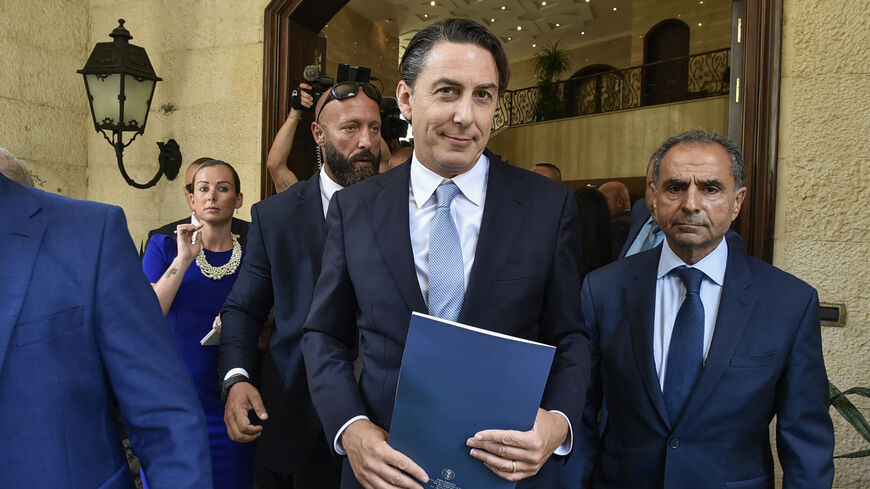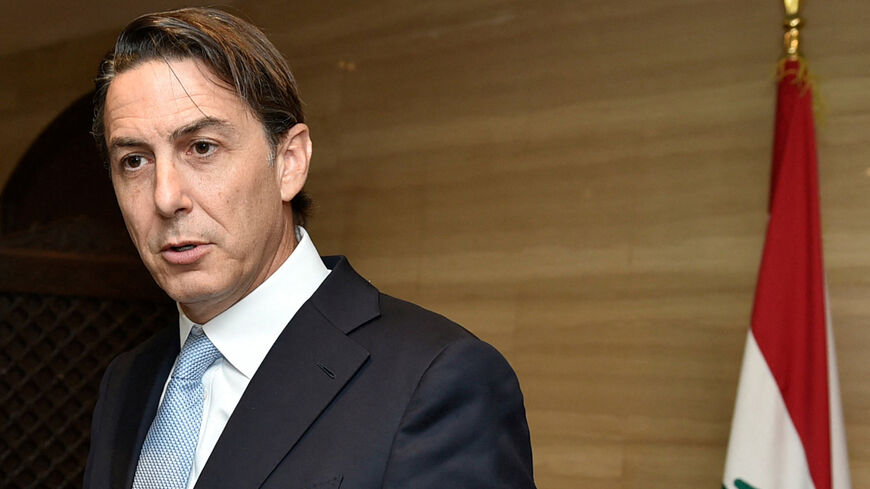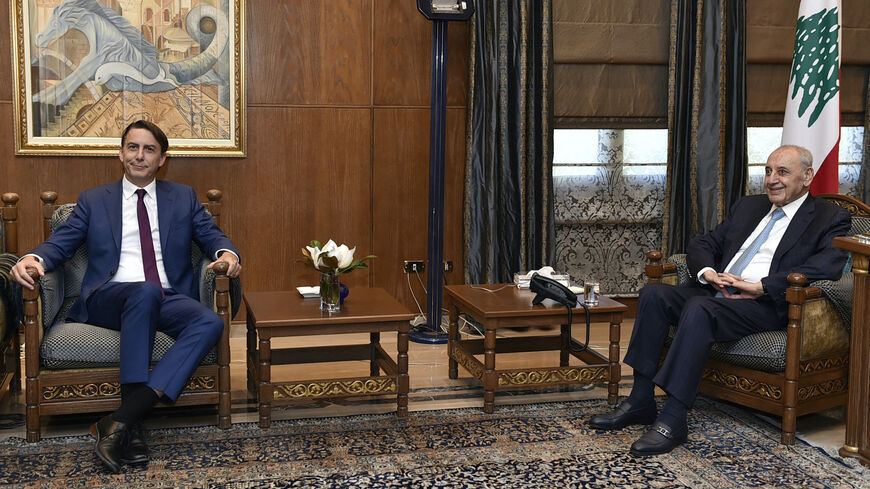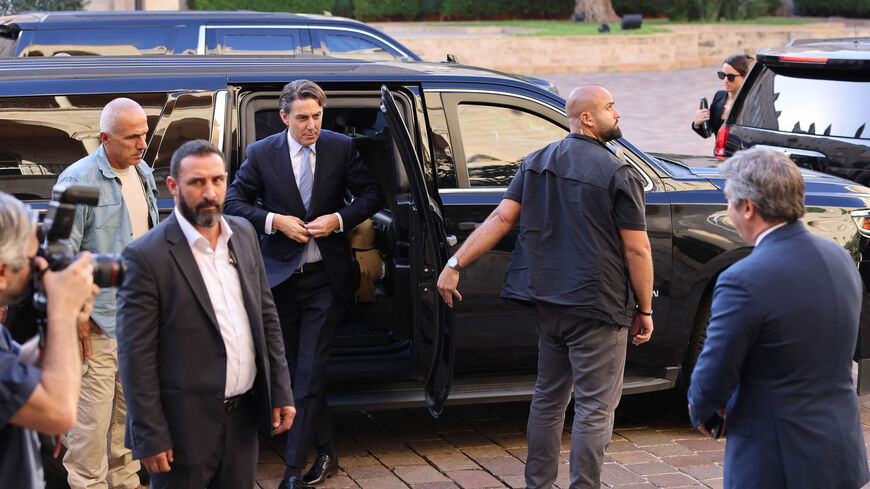US envoy Hochstein says 1701 'not enough' to end Israel war in Lebanon
US special envoy Amos Hochstein is in Lebanon for talks on a formula that would put a stop to the war in Lebanon, after Israel reportedly presented new conditions for a cease-fire.
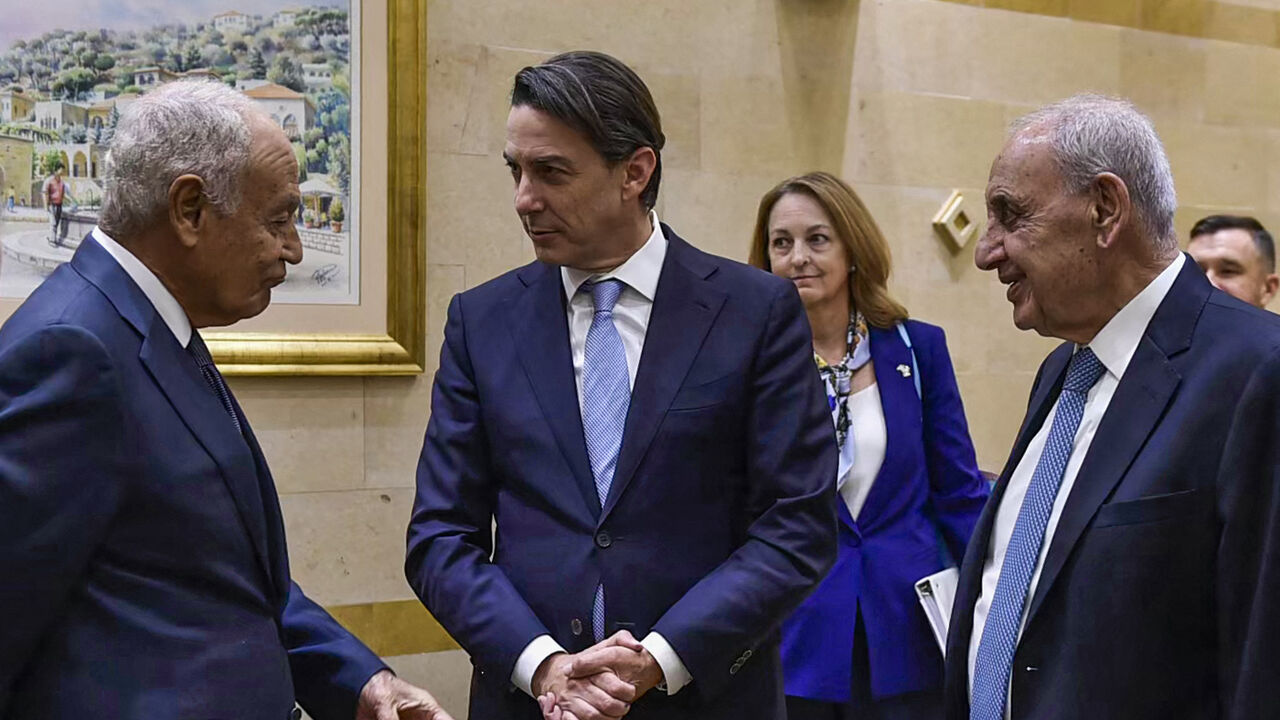
BEIRUT — US special envoy Amos Hochstein arrived in Lebanon’s capital Beirut on Monday for talks with officials on a cease-fire between Israel and Lebanon, stressing that UN Resolution 1701 is no longer enough to end the war.
Hochstein met with parliament speaker Nabih Berri, who is also head of the Hezbollah-allied Shiite Amal political movement, and caretaker Prime Minister Najib Mikati.
Speaking at a press conference in Beirut following his meeting with Berri, Hochstein stressed that Washington is seeking an end to the conflict “as soon as possible.”
He added that Israel’s and Lebanon’s commitment to UN Resolution 1701 is “not enough,” referring to the resolution that ended the 2006 war between Israel and Hezbollah.
While stressing that any solution to the conflict in Lebanon must be based on the resolution, he said a new mechanism must be put in place to ensure it is implemented “fairly, accurately and transparently.”
“We are working with the government of Lebanon, the state of Lebanon, as well as the government of Israel to get to a formula that brings an end to this conflict once and for all,” he added during a press conference in Beirut.
Hochstein said the conflict, which has spiraled out of control in Lebanon, could have been avoided, but previous solutions “had been met with rejection.”
“Tying Lebanon's future to other conflicts in the region [Gaza] was not and is not in the interest of the Lebanese people,” he noted.
Hochstein has been engaged in shuttle diplomacy between Israel and Lebanon in the past months, as Washington seeks an end to the cross-border hostilities that erupted Oct. 8, one day after Hamas’ cross-border assault on southern Israel. Hezbollah says its fight with Israel is in support of the Gaza Strip.
The top US envoy last visited Israel Sept. 16, and was in Lebanon before that in mid-August. "This is my sixth or maybe seventh visit to Lebanon in the past year,” Hochstein said during the press conference.
Beyond 1701
Israel reportedly handed the United States a document with its conditions for a diplomatic solution to end the war in Lebanon, Axios reported on Sunday.
According to two US officials and two Israeli officials cited by Axios, Israel gave its list of demands to Hochstein last Thursday. These include allowing Israeli army forces to engage in “active enforcement” to ensure that Hezbollah doesn't rearm and rebuild its military infrastructure in areas in southern Lebanon, close to the border with Israel.
Israel also insists that its air force has the freedom to operate in Lebanese airspace.
One of the US officials told Axios that it is highly unlikely that Lebanon or the international community agree to these demands, as they contradict Resolution 1701, which he said would severely undermine Lebanon’s sovereignty.
In comments to the Saudi-owned Al-Arabiya TV channel on Sunday, Berri said he had been tasked by Hezbollah since 2006 to negotiate a cease-fire on its behalf, adding that the Iran-backed group has agreed to implement Resolution 1701, which also calls on Hezbollah to pull back north of the Litani River, some 30 kilometers (20 miles) from the border with Israel.
Berri stressed that while there is consensus on the resolution among Lebanese parties, he refuses any amendments to it. “I have a plan to save Lebanon,” he said, without revealing more details.
During Hochstein’s visit, Berri said it was “the last chance” before the US elections to reach a solution in Lebanon.
In similar comments to Al-Arabiya on Sunday, Mikati also affirmed his country’s commitment to Resolution 1701, which he said can achieve “long-term stability” on the border.
“Hezbollah agreed to implement Resolution 1701, and what is also required is to stop the Israeli aggression and the ongoing violations since the issuance of the resolution, by land, sea and air,” he added.
Since late September, Israel has expanded its strikes against Hezbollah targets across Lebanon, and on Oct. 1, it announced a limited ground invasion in the south to eliminate the threat of Hezbollah on its border. On Sunday evening, Israeli warplanes launched a series of strikes across Lebanon, targeting various branches of Al-Qard Al-Hassan, a financial institution that is believed to be linked to Hezbollah. Heavy airstrikes were also reported in the southern suburbs — a packed residential area known as Dahiyeh that is also a Hezbollah bastion.
The yearlong war has killed more than 2,400 people in Lebanon and injured over 11,500 others, while forcing nearly 1.2 million people into displacement, according to government estimates.
The Israeli military says hundreds of Hezbollah fighters and senior commanders have been killed since last year, including the group’s leader, Hassan Nasrallah.
In Israel, at least 54 people have been killed in Hezbollah attacks in the past year, according to Israeli authorities, nearly half of them soldiers.



